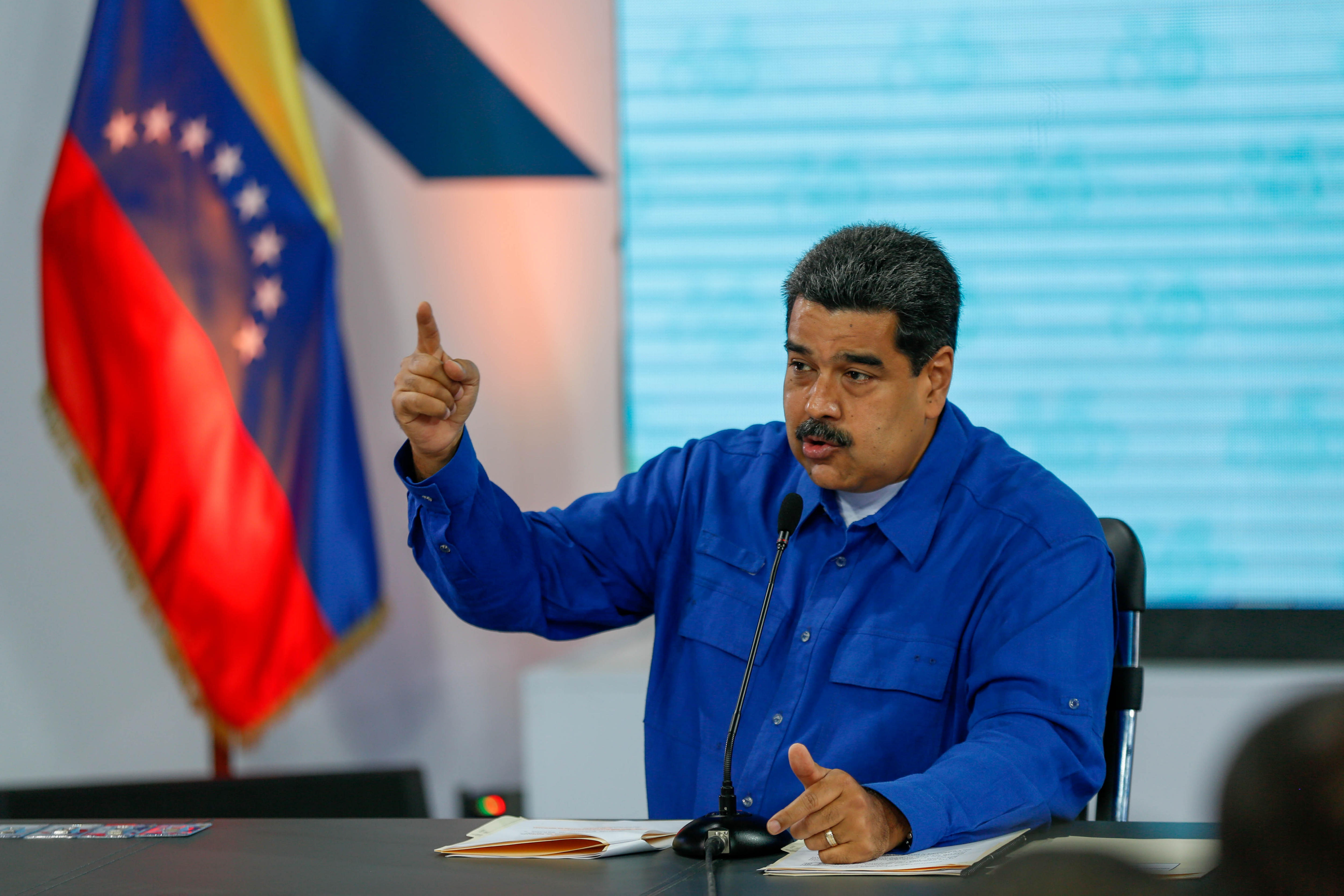
Venezuela hikes pay 95 percent to offset currency plunge
President Nicolas Maduro said that he had approved the hike as "a shield against the criminal economic war of the neoliberal oligarchy and the International…
Venezuelan President Nicolas Maduro on Monday announced a 95 percent increase in the pay and food allowance that will maintain the value of workers' total compensation at $37.
"I've decided on ... a comprehensive increase in the income of workers of 95 percent for the first of May," announced Maduro at a government event in Caracas, a measure that has been included on the food allowance card that Venezuelans receive in addition to wages.
The leftist president said that he had approved the hike as "a shield against the criminal economic war of the neoliberal oligarchy and the International Monetary Fund" that he claims is being waged against his government.
Maduro said that the move will increase salaries from 392,646 to 1 million bolivares and the food benefit from 915,000 to 1.55 million bolivares.
At the official exchange rate of 69,000 bolivares to the dollar, that total is equivalent to $37, the same amount that could be purchased on March 1 when Maduro raised the salary basis to 1.3 million bolivares and the exchange rate was $1 = 35,280 bolivares.
RELATED CONTENT
Maduro also announced that retirees will see a commensurate increase in pensions and food allowance.
For months, Venezuela has been mired in a serious crisis that the Maduro government attributes to an "economic war" being waged against it by the private sector with the help of foreign governments such as the US and Colombia.
The business community rejects those accusations and, along with the political opposition, blames the crisis on the economic policies that have been implemented since 1999 under the administrations of the late Hugo Chavez and his successor, Maduro.
The opposition-controlled congress calculated that 2018 inflation through March stands at 453.3 percent.
Venezuela's central bank stopped releasing macroeconomic data in December 2015.
The UN Economic Commission for Latin America and the Caribbean forecasts that the Venezuelan economy will shrink 8.5 percent this year.










LEAVE A COMMENT: